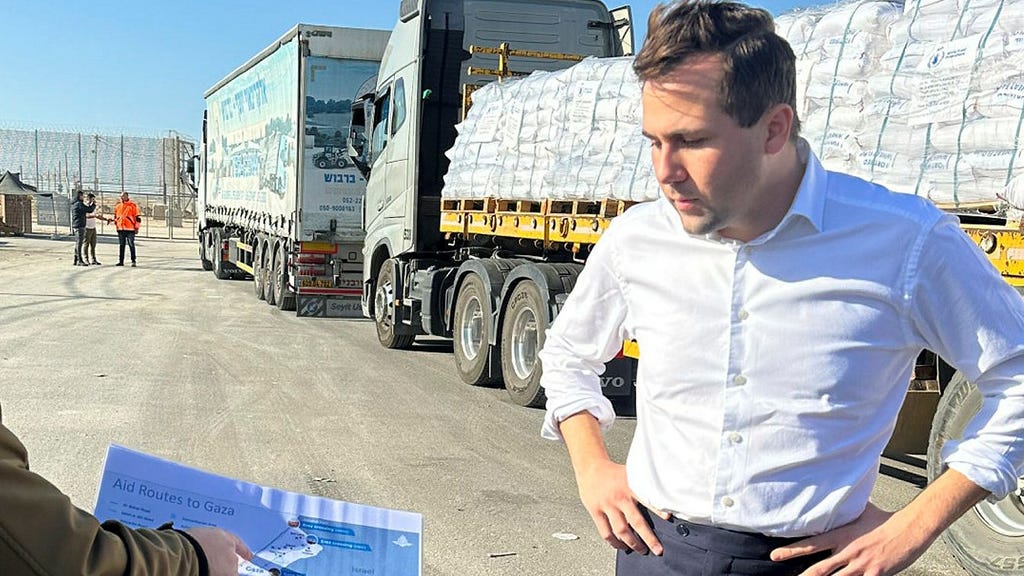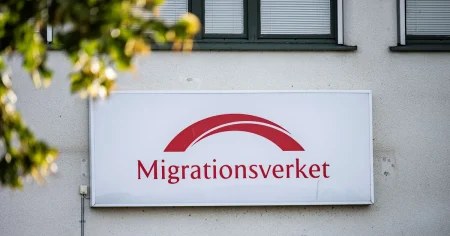Swedish Minister for Foreign Trade and Development Cooperation, Benjamin Dousa, recently concluded a visit to Israel and Palestine, marked by meetings with Israeli Deputy Foreign Minister Sharren Haskel and visits to the West Bank and a Gaza border crossing. Dousa expressed profound distress over the humanitarian crisis in Gaza, relaying harrowing accounts from civil society organizations and UN agencies. He described women struggling to find basic sanitation, facing sexual assault due to the collapsed legal system, and children scavenging for plastic to burn for warmth. Dousa emphasized the severe shortages of essential resources, including food, water, electricity, fuel, and medicine, painting a grim picture of the current situation.
In response to the dire conditions, the Swedish government announced a new 40 million SEK aid package for UNICEF, specifically targeting children in Gaza. This ”winter package,” as Dousa termed it, aims to provide basic necessities, education, and psychosocial support for orphaned children. While this aid is a welcome step, Dousa also echoed criticisms leveled by UNICEF and other aid organizations regarding Israel’s restrictions on the entry of humanitarian aid into Gaza. He underscored Israel’s responsibility as an occupying power to facilitate the safe and efficient delivery of essential supplies to those in need, urging Israel to allow more trucks carrying aid to pass through border crossings.
The humanitarian crisis in Gaza is further compounded by the recent Israeli parliamentary decision to ban all activities of the UN Relief and Works Agency for Palestine Refugees in the Near East (UNRWA) within Israel. This decision has drawn sharp criticism internationally, with some countries, like Spain and Norway, openly condemning the move. While acknowledging the gravity of the situation, the Swedish government has stopped short of outright condemnation. Dousa defended this stance, arguing that the focus should be on providing support to the civilian population rather than on specific wording. He reiterated his concern over the recent developments, stating that he conveyed these concerns directly to the Israeli Deputy Foreign Minister.
The refusal to condemn Israel’s decision regarding UNRWA has sparked debate within Sweden. Opposition parties, such as the Green Party, have called for stronger action, including potential sanctions against Israel. Green Party spokesperson Amanda Lind stressed the crucial role UNRWA plays in providing essential services and infrastructure for aid delivery in the region, arguing that the organization cannot be easily replaced. She criticized Dousa’s reluctance to condemn Israel’s actions and called for more decisive intervention to address the humanitarian crisis. While the 40 million SEK aid package for UNICEF is a positive step, Lind argued that it is insufficient given the scale of the crisis and the importance of UNRWA’s role.
Dousa’s trip and the subsequent aid announcement highlight the complex political and humanitarian landscape in the region. The Swedish government’s commitment to providing aid while refraining from directly condemning Israel reflects a delicate balancing act. The decision to prioritize aid delivery over strong rhetoric raises questions about the effectiveness of such an approach in influencing Israeli policy. The debate within Sweden further underscores the diverging views on how best to address the ongoing crisis.
The situation in Gaza remains precarious, with the confluence of ongoing conflict, blockade, and now the ban on UNRWA’s activities, creating a dire humanitarian situation. The international community, including Sweden, faces the challenge of finding effective ways to alleviate the suffering of the civilian population while navigating complex political considerations. The long-term solution requires a multifaceted approach that addresses the underlying causes of the conflict while ensuring the immediate needs of the Palestinian people are met. The debate continues as to whether prioritizing aid while avoiding strong political statements is the most effective way to achieve this goal.














